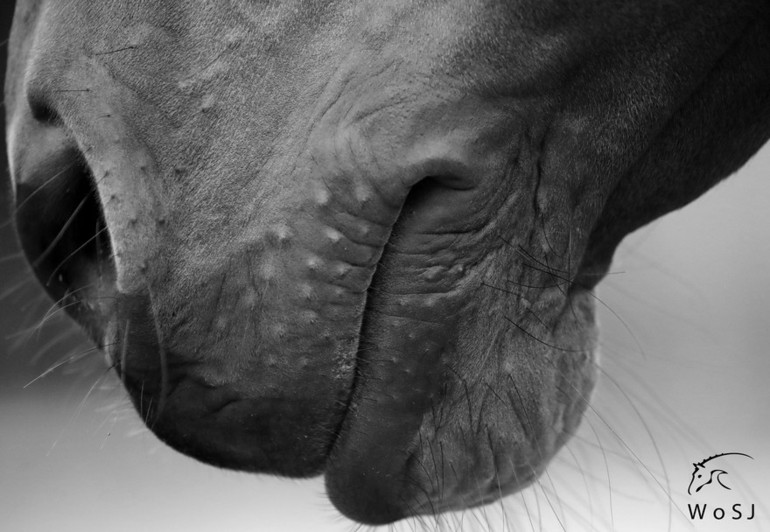Text © World of Showjumping
Two horses from a German group of showjumpers that competed at the CES Valencia Spring Tour in Spain have died after contracting the Equine Herpes Virus – EHV-1 neurological form. The news of the virus outbreak first appeared in the equestrian media last Sunday, after classes at the tour were being cancelled. Earlier this week, the FEI Veterinary Department announced it was working with all parties involved to provide support to those impacted and to minimise the spread of the virus. The FEI had been advised that 150 horses were still on the venue, and that a total of 72 horses were showing clinical signs of EHV-1. Of the 47 horses that at that stage had been tested, 17 were confirmed to have the virus.
This weekend, the situation in Valencia took a turn for the worse as two horses died. One of the horses that contracted the virus and lost the battle was Casta Lee FRH (Cassus 2 x Accorado), a 14-year-old mare that has enjoyed much success with Germany’s Tim-Uwe Hoffmann – one of the riders that had been competing at the CES Valencia Spring Tour in February. Hoffmann shared the news through his social media channels on Saturday. On Sunday morning, more sad news followed from Valencia as German rider Tessa Thillmann’s 12-year-old mare 3q Qadira (Arpeggio x Piano 2) passed away. The pair had represented Germany at the European Championships for children in 2019 where they claimed team silver.
Both Casta Lee FRH and 3q Qadira were part of a 24-horse entourage training with Hilmar Meyer, who runs a trading and training stable in Thedinghausen, Germany. Meyer has had several horses from his group falling sick at the show. To World of Showjumping, Meyer’s rider Lexi Stais tells how the outbreak has left their whole team absolutely devasted. While Stais had to return to the stables in Thedinghausen on Friday to take care of the horses at home, Meyer is still is Valencia with the rest of the team.
“Right now, I think the best would be to close off the showgrounds around Europe to stop this from spreading and get absolutely all horses tested. Personally, after witnessing this virus first-hand, I believe it’s the only way to prevent this from turning into a huge pandemic,” Stais says. “Inside those stable tents in Valencia, it felt like a war zone – people are desperate on behalf of the horses.”
“We had a total of 24 horses with us to the CES Valencia Tour for February, nine of them which I competed, as well as students with horses both from our own stable and from outside our stable,” Stais tells. “One of the students is Tim-Uwe Hoffmann, who lost his top mare Casta Lee FRH on Friday, and another one is Tessa Thillmann, who lost 3q Qadira on Sunday morning.”
“Last Saturday, the 21st, one of our horses was the first to get taken into the clinic,” Stais tells. “The vets were a bit concerned as there were a lot of horses with a high temperature earlier that week. Obviously, this made all of us ask questions. When our one horse started to walk really weird behind, in addition to having a high temperature, the alarm went off and it went straight to the clinic,” Stais explains.
“Unfortunately, the clinic has had limited space,” Stais continues. “It’s an amazing clinic with top vets, but they don’t have the special equipment needed for more than three horses. Some horses have been taken to Barcelona and Madrid I believe, but some have also been too sick to be transported this far or even out of the showground. By now, they have built up a temporary clinic at the showground and the two vets that have been there alone have finally gotten assistance.”
“From our 24 horses, only nine have not had a fever since the start of the outbreak,” Stais tells. “On Saturday morning, they got moved to another stable at the showground – separated from the sick horses. There is also one more mare from our team in the clinic, that yesterday was given a 10% chance of surviving – somehow she is still fighting,” Stais says. “We’re praying for her, but she is not over the mountain yet.”
“I spoke with Hilmar this morning, and he said it’s an extremely aggressive virus, and it’s highly contagious,” Stais says. “It seems like it acts very differently from horse to horse, and when it attacks it goes very fast for the horses to get really sick. Although the vets are doing everything they can, it’s eventually down to how strong immune system the horses have.”
“We are desperate to get our horses home, but at this stage it’s more about how many horses that will come back alive,” Stais closes off.









